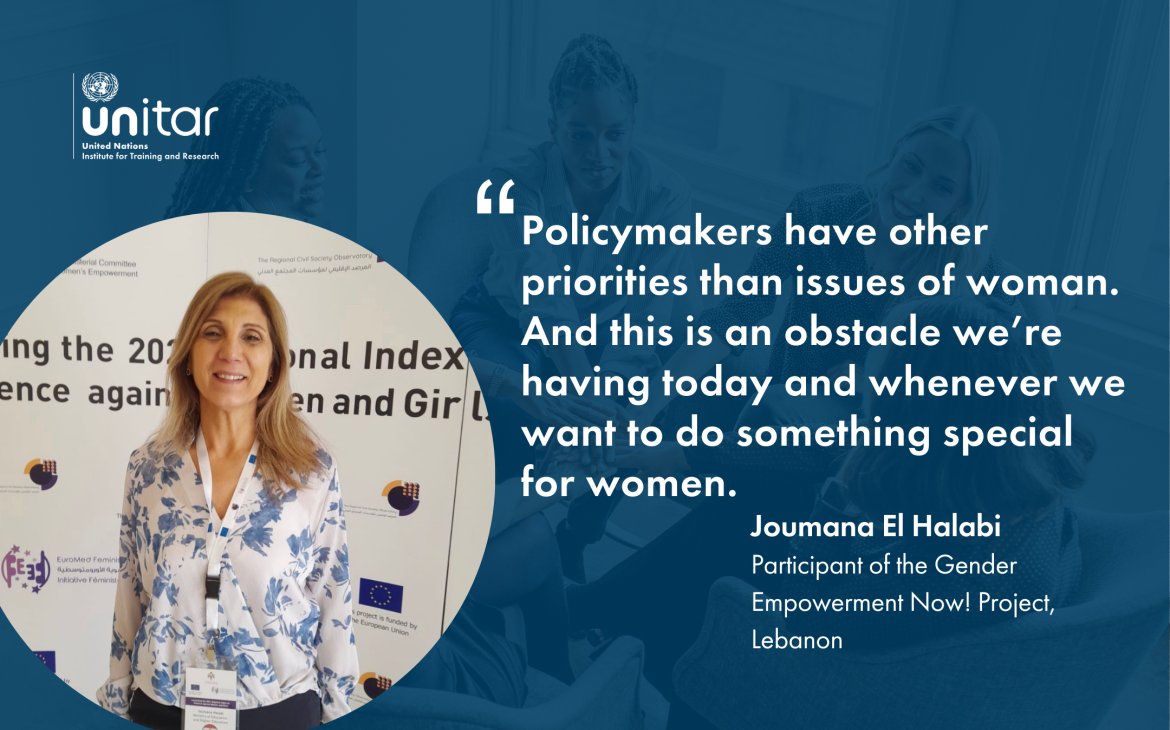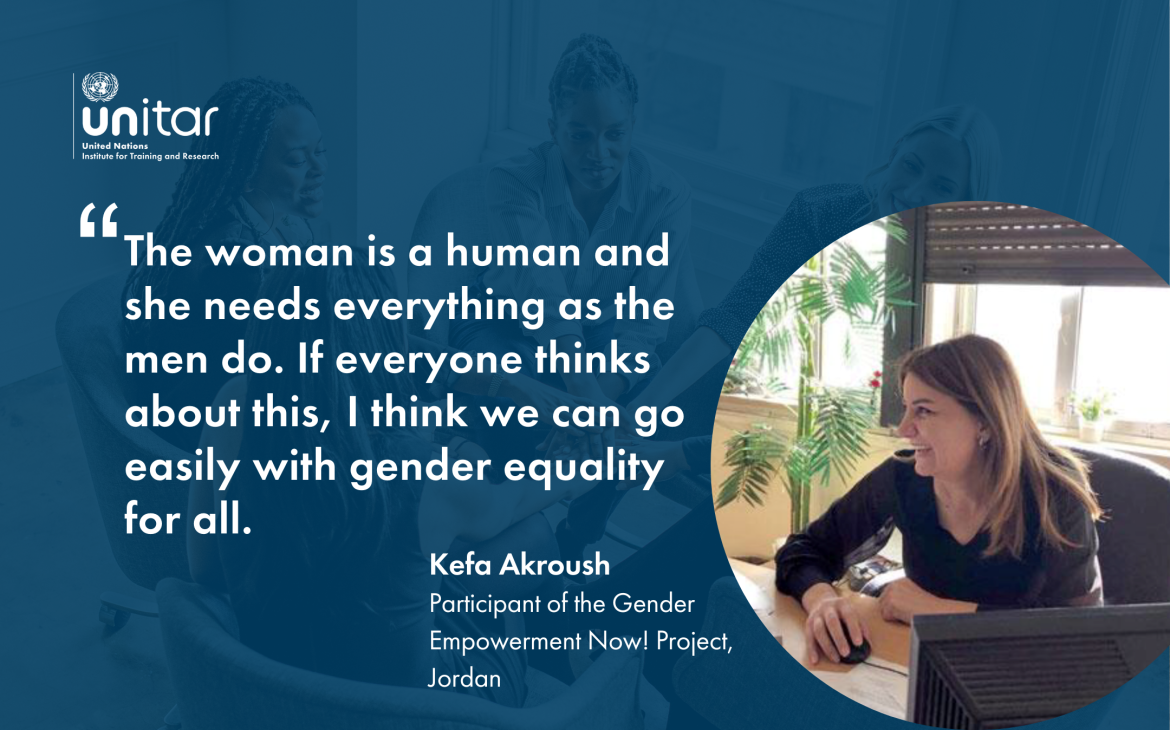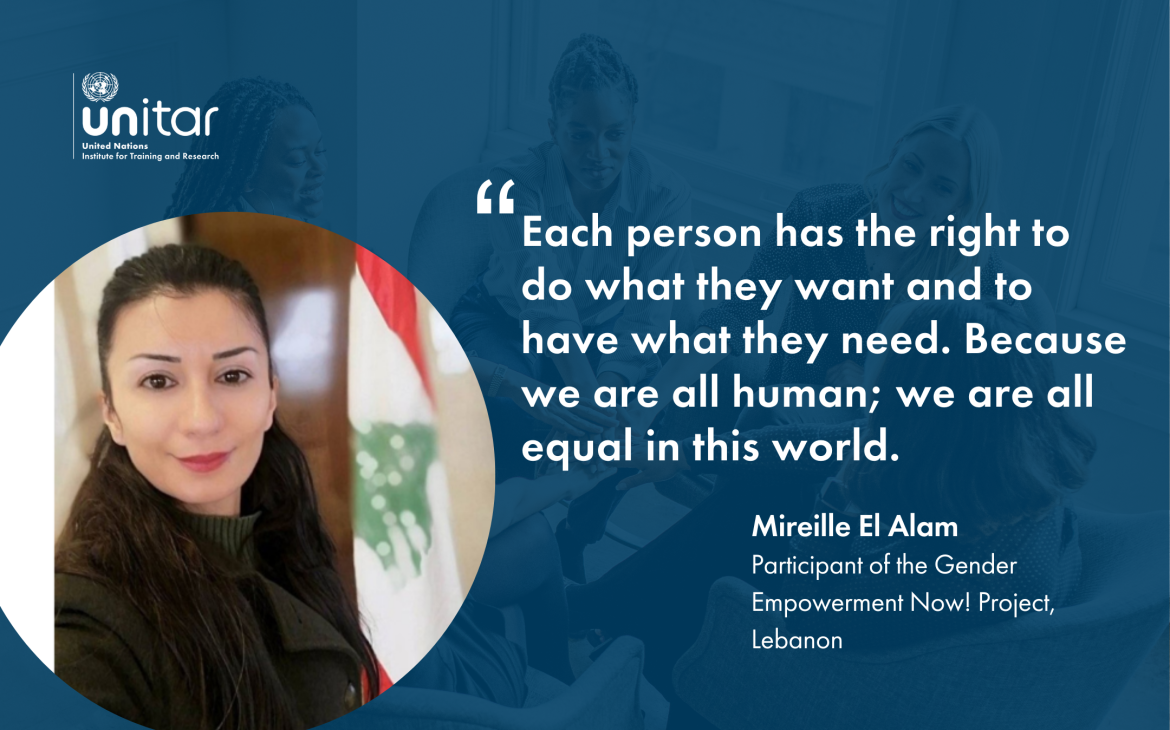Building Government Institutional Capacity to Mainstream Gender Equality
On the path to gender equality (Sustainable Development Goal 5), each nation, state or municipality has its own starting point, shaped by a unique cultural identity and socioeconomic and political conditions. And these in turn shape the tools to seek and implement change.
UNITAR supports countries on their paths by enhancing the skills of their people and empowering them to take locally tailored-action. Launched in 2021, the Gender Empowerment Now! The project trains government officials from the Middle East and North Africa so they can effectively implement gender equality initiatives within their institutions.
Gender-responsive budgeting [has] economic and social dimensions that aim [for] the equitable distribution of opportunity between men and women. —Alin Aoun, Executive Assistant of the National Strategy for Women in Lebanon
This programme was made possible by the generous support of UN Women and the Cypriot Government
Programme Snapshot
UNITAR has trained government officials from Iraq, Jordan and Lebanon so they can mainstream gender and help realize gender equality through their public institutions.
Outcomes from the 2024 Cycle
- 85% of participants agreed that the topics covered resonated deeply with their work in addressing women’s issues.
- 83% indicated they intended to apply the knowledge acquired in their professional settings.
- Pre-training evaluations showed that 55% of attendees considered their knowledge of gender equality to be “fair”. Post-training evaluations indicated that 80% rated their knowledge as “good” or “excellent”.
Project History
- 2021: 58 officials from Jordan and Lebanon were introduced to the foundations of gender equality, the Sustainable Development Goals and the United Nations 325 Resolution on Women, Peace and Security
- 2022: Building on the pilot, 34 officials from Jordan and Lebanon learned how to apply holistic gender mainstreaming in their institutions and to implement and manage policies, projects and strategies for gender equality
- 2023: 39 officials from Iraq, Jordan and Lebanon practiced advanced, essential leadership and advocacy skills so they could become catalysts for gender empowerment
- 2024: A new cohort of 29 officials from Iraq, Jordan and Lebanon built their knowledge and skills in leadership and gender-mainstreaming approaches and tools and developed action plans to implement in their work
News
Meet Our Alumni
- Alia Abbas (Iraq): Changing The System from Within: Women’s Empowerment in the Iraqi Public Health System (2024 cohort)
- Karmen Chebib (Lebanon): Changing Gender Attitudes in Lebanon Through Schools (2023 cohort)
- Joumana El Halabi (Lebanon): Powering Up To Advance Gender Equality and Women’s Empowerment (not sure which cohort; article from 2022)
- Kefa Akroush (Jordan) and Mireille El Alam (Lebanon): Integrating Gender Equality Into Mainstream Government Policy (2021 cohort)
Downloads
Contact us
For more information, please contact us at hiroshima@unitar.org





